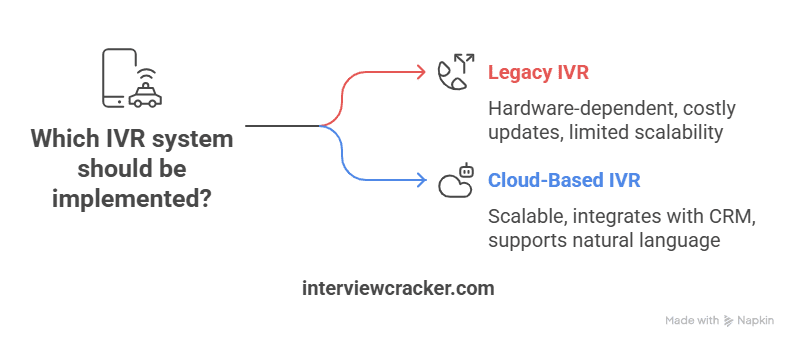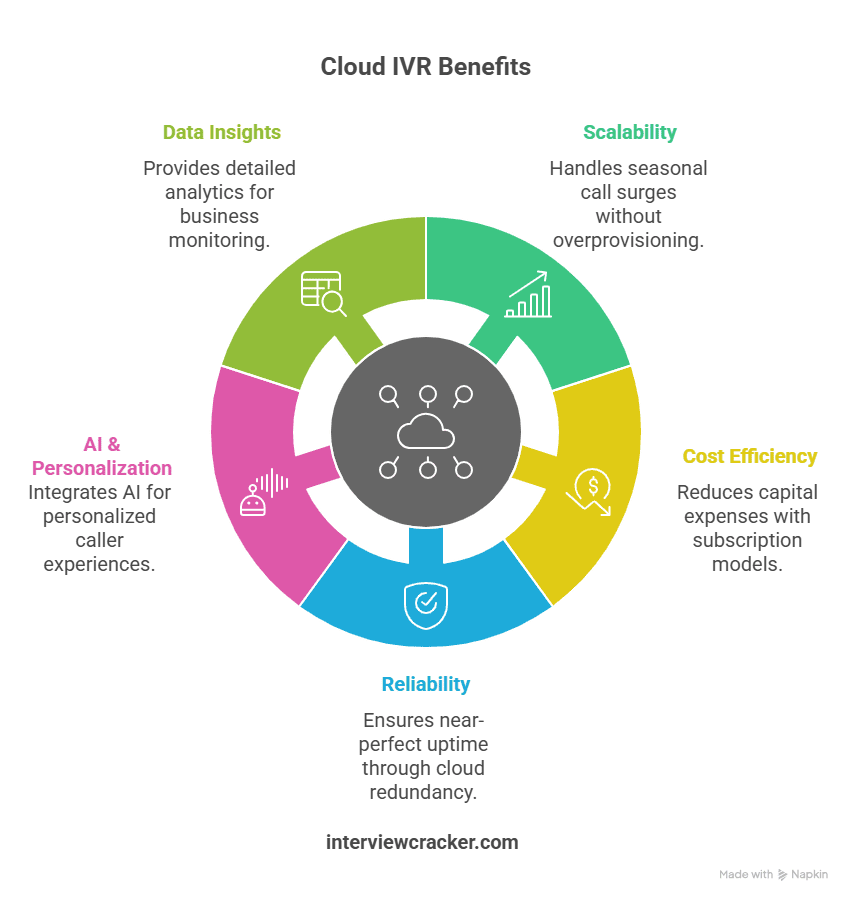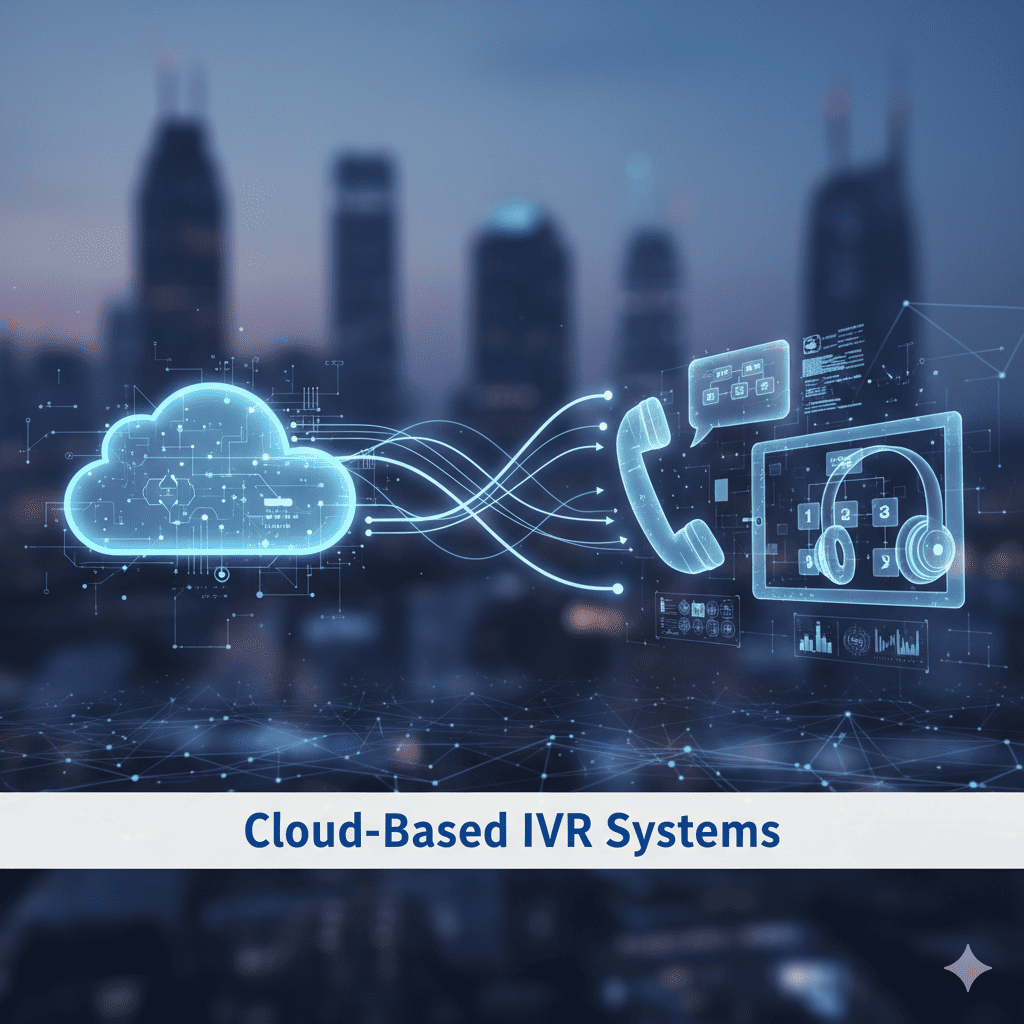Imagine calling your bank in Frankfurt or a telecom provider in London, only to be greeted by an outdated, robotic menu that never quite understands your accent. That frustration is the reality many customers face when businesses still rely on legacy call center systems.
Today, companies across Germany and the UK are saying goodbye to these clunky infrastructures and embracing cloud-based IVR (Interactive Voice Response) platforms. Why? Because modern customers demand faster service, personalization, and 24/7 availability — and cloud technology delivers.
This article explores why enterprises in Germany and the UK are leading this shift, the benefits of cloud IVR, real-world examples, and how decision-makers can migrate successfully.
Table of Contents
ToggleWhat Is Cloud-Based IVR vs Legacy Call Centers?

Legacy IVR / Call Centers: Hardware-dependent, on-premises systems with limited scalability. Updates often take months and require costly IT resources.
Cloud-Based IVR: A SaaS model hosted on the cloud. It routes calls intelligently, integrates with CRM platforms, supports natural language, and scales on demand.
Platforms like Genesys Cloud IVR, NICE CXone, and Twilio Voice API exemplify how far cloud solutions have come — offering AI-powered voice menus, real-time analytics, and multilingual support.
Why German & UK Companies Are Leading the Shift
Regulatory Pressure: GDPR and data sovereignty require secure, transparent handling of customer interactions.
Customer Expectations: German and UK consumers expect round-the-clock support, low wait times, and personalized interactions.
Cost of Legacy Systems: Maintaining hardware, IT staff, and physical call centers drains budgets.
Competitive Edge: With digital transformation a priority, enterprises can’t afford to appear outdated.
For example, NFON AG, a German cloud telephony provider, is helping companies migrate seamlessly to compliant, flexible IVR systems.
Key Benefits of Cloud IVR for Enterprises

1. Scalability and Flexibility
With platforms like CloudTalk or Telnyx, businesses can handle seasonal call surges — such as holiday shopping or insurance renewals — without overprovisioning.
2. Cost Efficiency
Instead of capital expenses (servers, PBX hardware), companies pay a monthly subscription. Nextiva and Aircall are attractive here for SMEs looking to cut costs.
3. Reliability and Uptime
Vendors like NICE CXone and Genesys guarantee near-perfect uptime through cloud redundancy.
4. Advanced AI & Personalization
Five9’s Visual IVR integrates with CRMs to provide agents with caller context instantly, while Genesys uses AI to understand natural speech — even across German and British accents.
5. Data-Driven Insights
Modern cloud IVR systems generate detailed analytics. Businesses can monitor first-call resolution, abandonment rates, and customer sentiment.
Challenges in the German & UK Context
Data Privacy & Residency: Enterprises must confirm whether providers (e.g., Twilio, Aircall) host data in the EU or UK.
Migration Complexity: Transitioning from legacy systems requires process redesign.
Language Handling: Accents (Scottish, Bavarian, Cockney) can challenge speech recognition if not tuned correctly.
Vendor Lock-In: Choosing a vendor without flexibility may limit future options.
Case Studies & Real-World Examples
Telefonica Germany: Streamlined routing through AI-driven IVR, reducing average resolution times.
Swisscom: Handles millions of calls across multiple languages using a cloud IVR solution, boosting customer satisfaction.
UK SMEs: Increasingly adopt Aircall and CloudTalk for simple, cloud-ready call handling with IVR menus.

Practical Steps for Migration
Audit Current Systems: Map out existing call flows, pain points, and volumes.
Vendor Selection: Consider compliance, SLAs, and AI features. Shortlist Genesys, NICE, Aircall, CloudTalk, Five9.
Pilot Program: Start with one department or region.
Integration: Ensure compatibility with CRMs (Salesforce, HubSpot, Dynamics).
A/B Testing: Test IVR menus using Five9 or Nextiva for improved customer journeys.
Training & Monitoring: Train agents to work with hybrid AI-IVR setups and measure KPIs continuously.
Future Outlook
The shift is clear: legacy call centers are dying, and cloud IVR is the future. With conversational AI, multilingual support, and analytics, platforms like Genesys, NICE, Twilio, Aircall, and CloudTalk will shape customer service across Europe.
Enterprises that migrate now will enjoy lower costs, higher customer satisfaction, and a clear competitive edge.
FAQs (Voice-Search Friendly)
Q1. What is the difference between cloud IVR and legacy IVR?
Legacy IVR relies on on-prem hardware, while cloud IVR is hosted online with AI, scalability, and lower costs.
Q2. Which companies provide cloud IVR in Germany & UK?
Popular providers include Genesys, NICE, Aircall, Twilio, Five9, CloudTalk, NFON AG, and Nextiva.
Q3. How much can businesses save by switching to cloud IVR?
On average, enterprises save 30–40% on infrastructure and IT overhead by adopting cloud IVR.
Q4. Is cloud IVR GDPR compliant?
Yes, if vendors host data within the EU/UK and meet regulatory requirements. Providers like Genesys and NICE offer GDPR-compliant solutions.
Q5. How do I choose the right IVR provider?
Evaluate providers based on data residency, scalability, AI features, and integration with your current systems.





